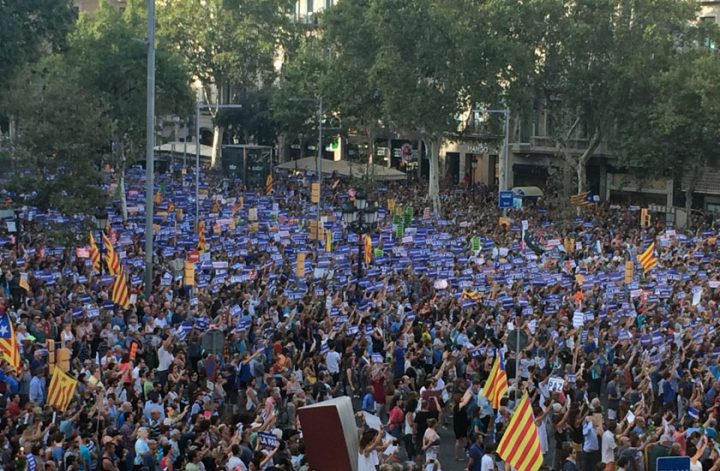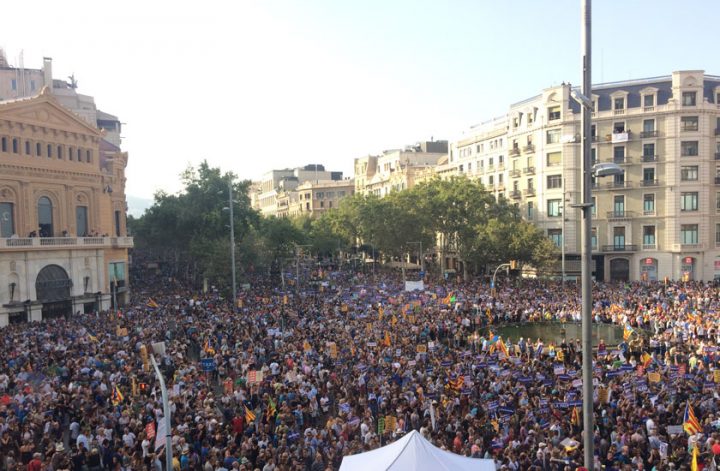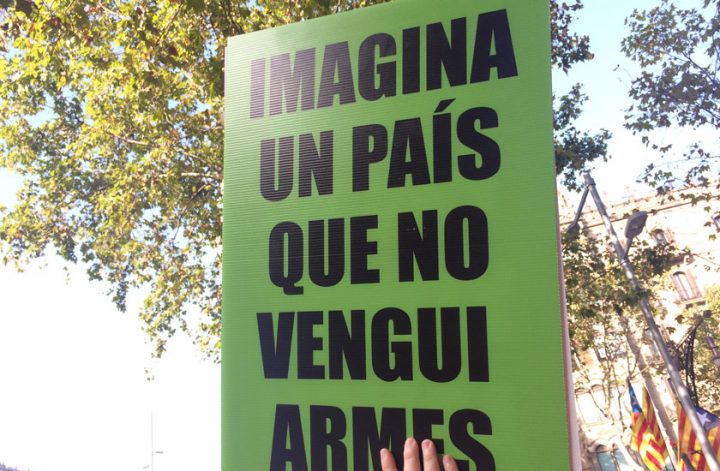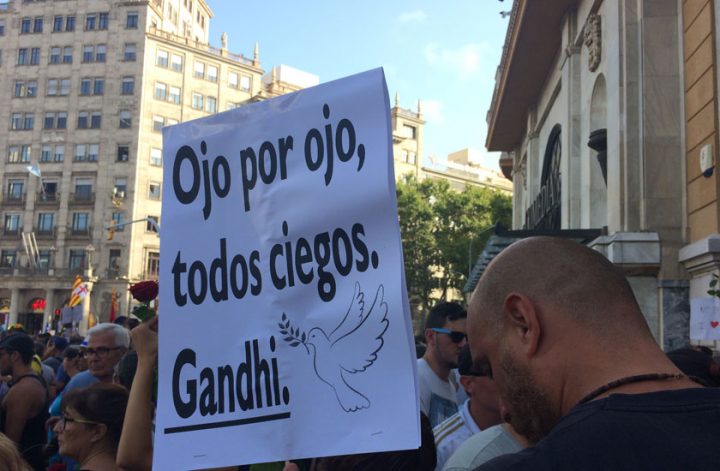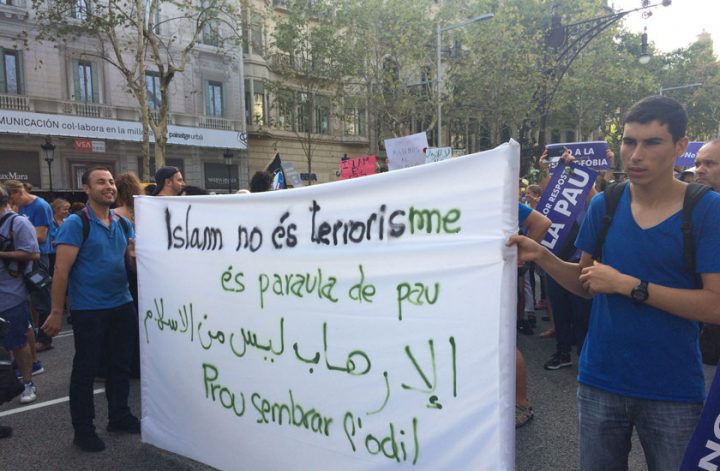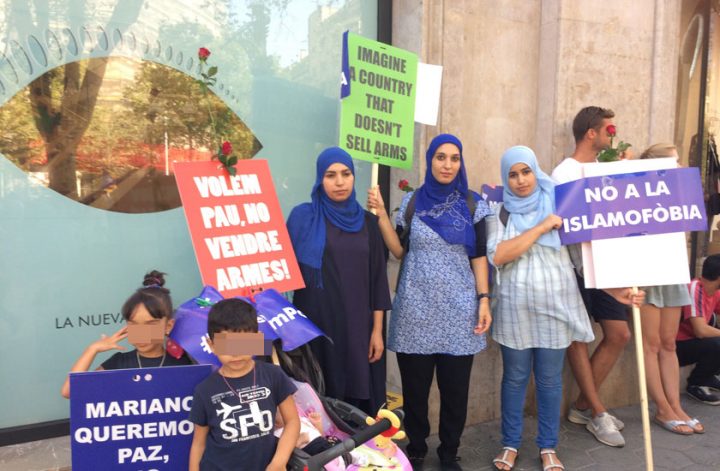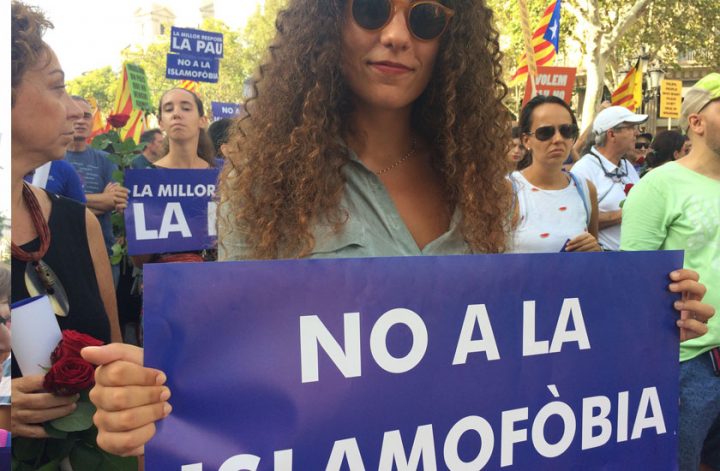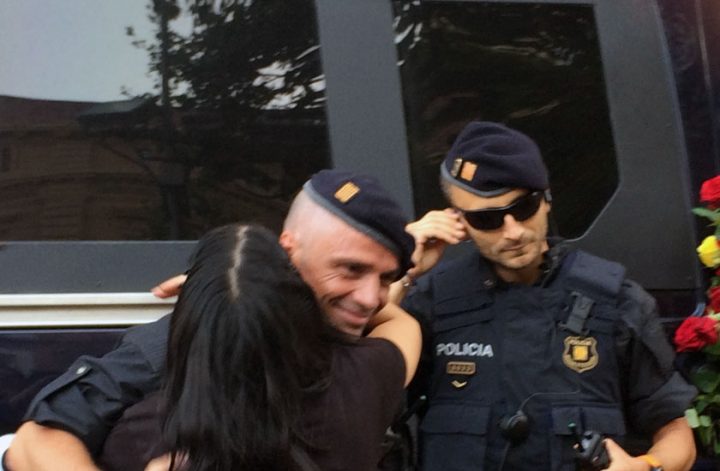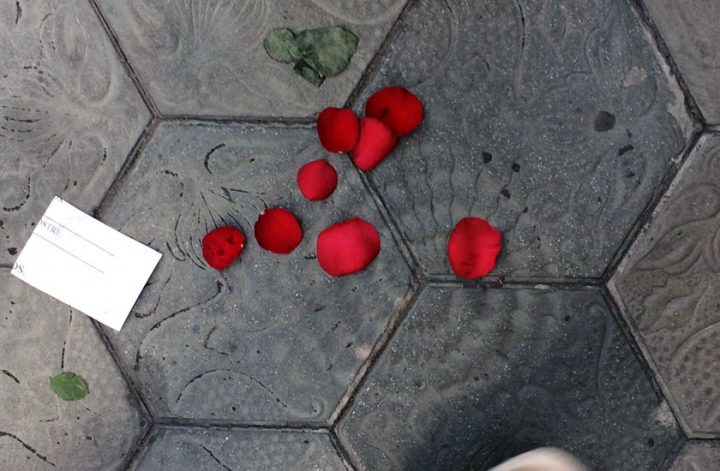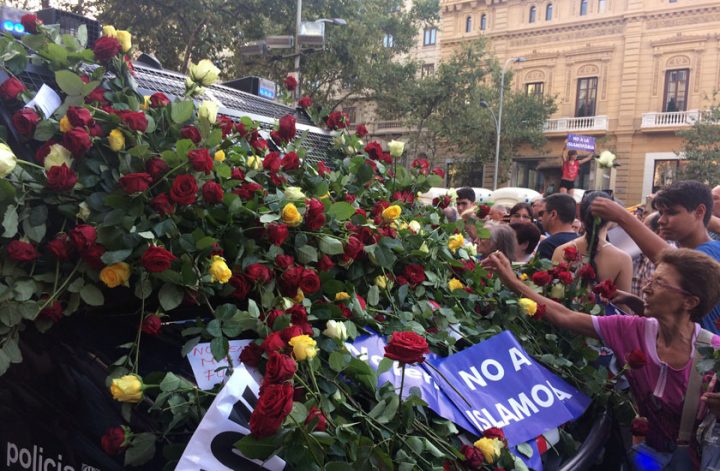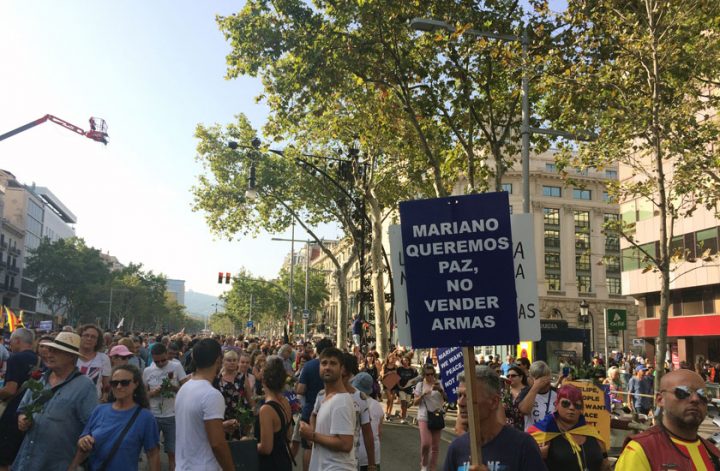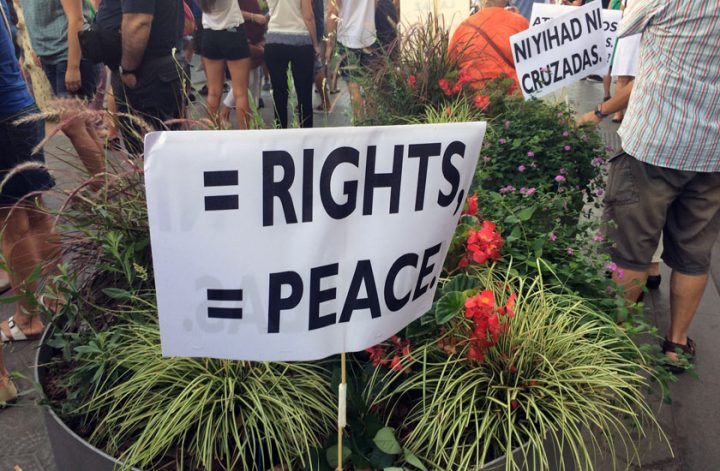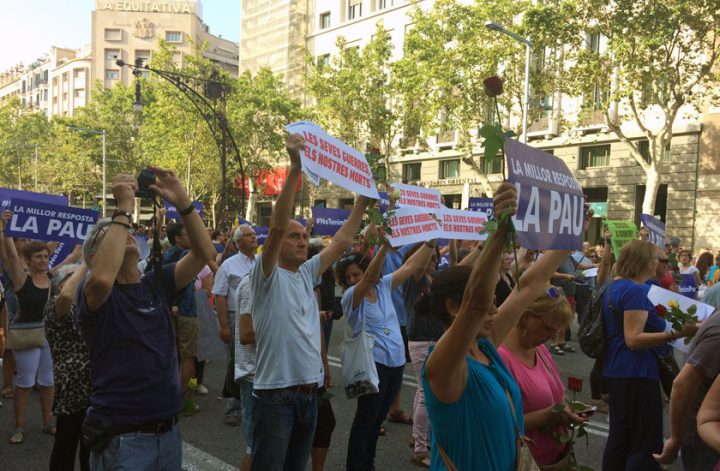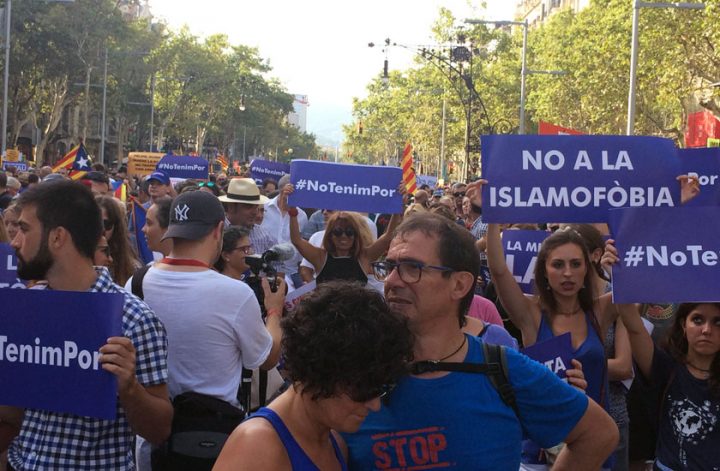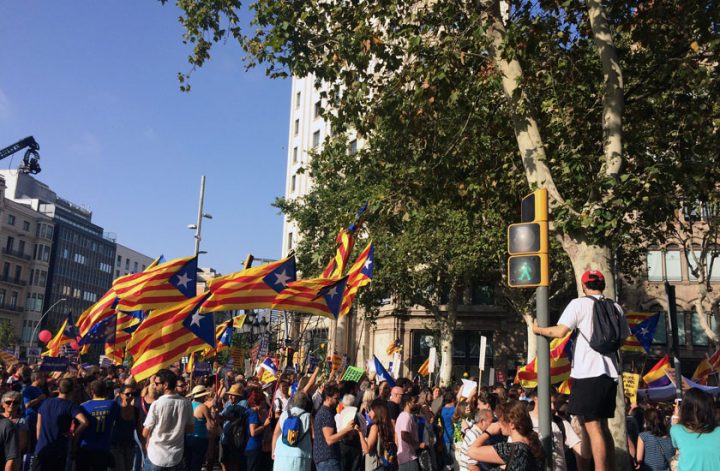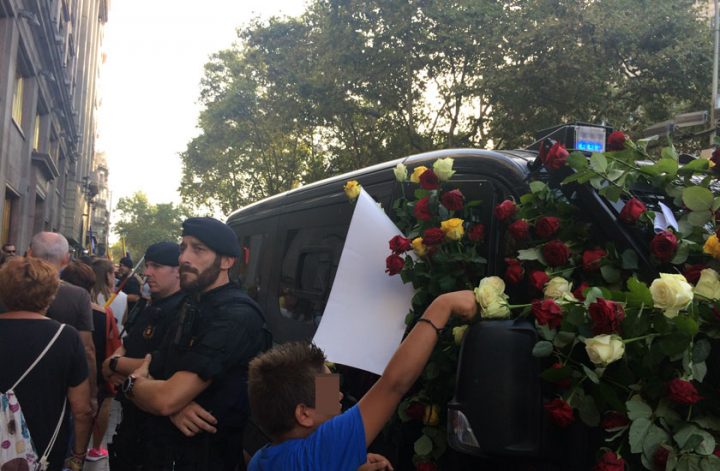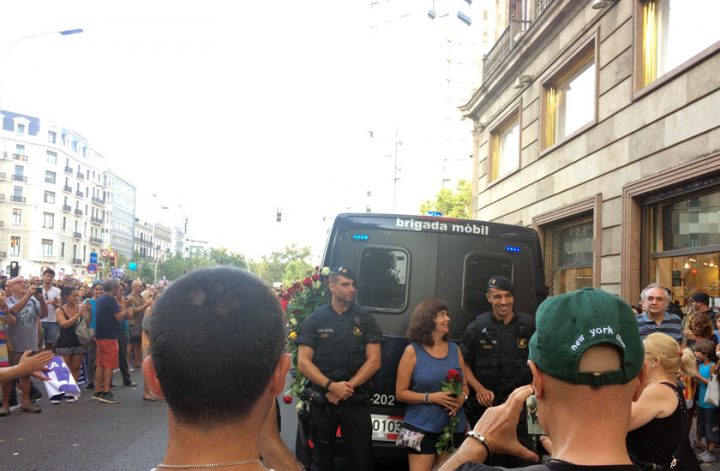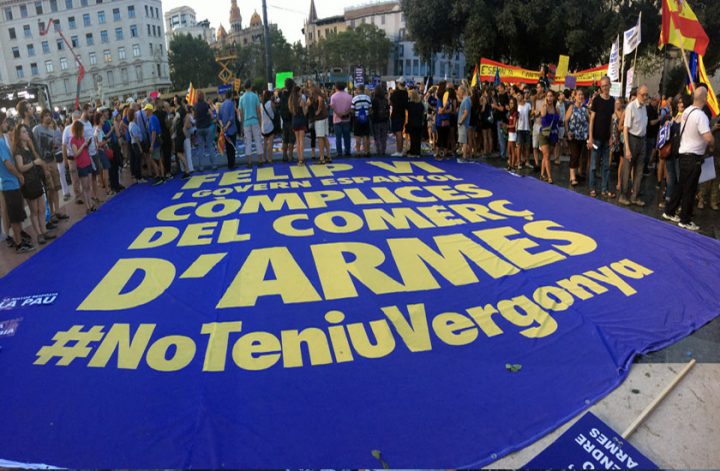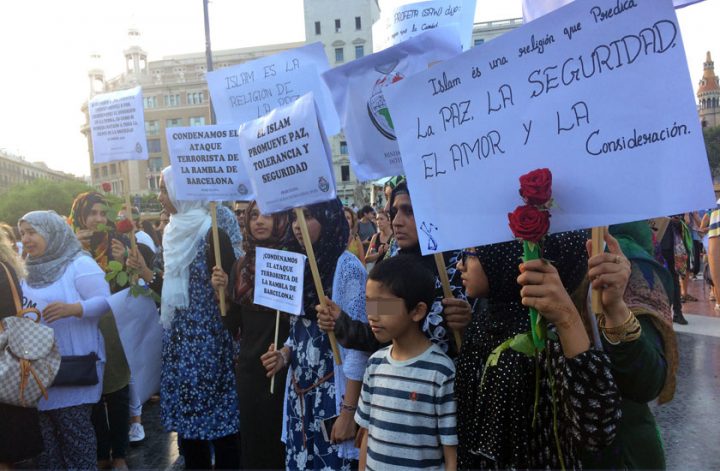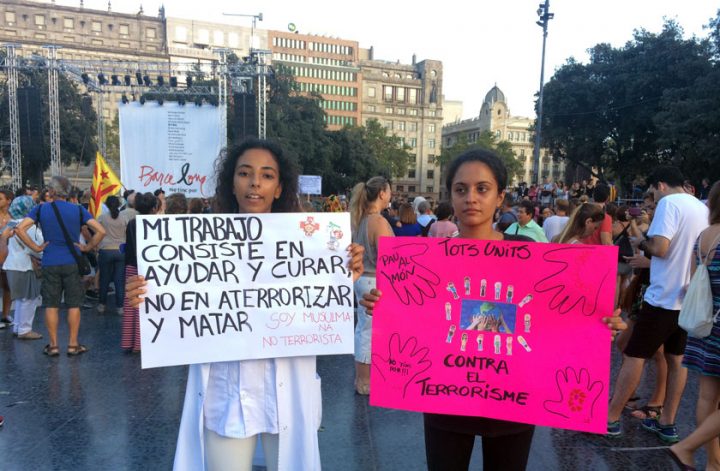A massive demonstration of around half a million people with the slogan “We are not afraid” took place in Barcelona on the 27th of August, following on from the terrorist attacks of the 17th of August in Barcelona and Cambrils, but it was tainted by protests, demands and strange things that go beyond the events themselves.
The protests, targeting the warmongering policies that form the backdrop to the terrorist attacks, reduced the tension on what could have been something islamophobic; an assault on a religion, culture or country which is blamed and attacked. But no! Catalan society didn’t allow itself to fall into this trap: it isn’t a religion’s fault, but rather policies at the service of militarism and related directly to the globalisation of fear. The information circulating among those participating blamed people like King Felipe VI who sell weapons to Saudi Arabia.
The whistles of disapproval towards the representatives of the Royal Family and certain politicians resonated along the length of Passeig de Gracia and Plaza Catalunya during the demonstration. This very rejection of the king’s presence was the driving force behind the 170 associations and platforms in the fields of human rights and others which organised the demonstration that, although a joint demonstration, was convened one hour earlier and under the slogan “Your policies, Our dead” and to which people were invited to go dressed in blue.
The demands of “no to terror and fear” and to defend every human being regardless of their beliefs can be added to the numerous acts of solidarity with the Muslim community and the support of all those who have offered their work in the aftermath of the attacks.
But this was also a strange demonstration. It wasn’t a demonstration like previous ones. Thousands of red and yellow roses were distributed among the participants; roses that people were invited to give away as a symbol of gratitude because protest and demands weren’t the only driving forces behind it. This demonstration has shown how a transferential action such as hugging, gratitude and a display of emotion has the power to erase all cultural differences. The protagonists weren’t the politicians, but rather the people.
Ten days on since the attacks, Catalan society is responding in an unpredictable way: love has surpassed hate. The victims aren’t just those the van crashed into, but also the attackers themselves (we could say murderers), who dead or alive, are the consequence of an irrational society. “We lost 8 children from Ripoll,” said one of the neighbours who couldn’t believe that those children, young people between 17 and 20 years old, could have committed such an atrocity. We won’t go into this now, but it’s worth mentioning, that those young men, those murdered killers, have the right to be judged like any other human being should be, under a law that isn’t about punishment and revenge, but is instead integrating. But this will no longer be possible in the case of those who are dead.
It was also a strange demonstration because in that effusive love, the security services, until now so blamed by the same sector of society that approves of “no to fear”, became accomplices of the citizens; heroes to be thanked, hugged and applauded.
But if there’s anything to be taken away from this, looking ahead to what direction these events and responses could take in in the future, it’s that society knows that Muslims aren’t the cause, and that Catalan society will not be silenced by the hatred and fear that arms traders and warmongers try to transmit. Because we screamed it out loud, “We are not afraid!”
